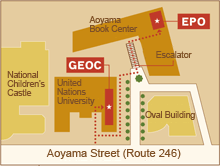Overview
PNPM Mandiri is an effort to alleviate poverty by empowering local communities, improving public welfare, and enhancing employment opportunities through the development of rural tourism in Indonesia. Initiated in 2007, the PNPM Mandiri in Tourism program covered 569 ‘tourism villages’ in 2011 and is expected to have reached 978 villages in 2012. PNPM Mandiri in Tourism focuses on the development of targeted areas that have relevance and attractive elements for tourists. The program refers to a community-based tourism development model focused on three areas of activity: (1) development of ‘tourism villages’; (2) development of areas surrounding tourist attractions; and (3) tourism-related entrepreneurial partnerships. These approaches have succeeded in establishing ‘tourism villages’ with a very well-preserved local knowledge base, and also help promote environmental sustainability.
Some of the best practices utilized in this program are: the optimization of unique, traditional, non-fuel transportation modes; arrangement of home stays; promotion of local arts and cultural performances; capacity buildings to the local people; improvement of existing tourism facilities; etc.
Destination Management Organizations (DMOs) are strategic and management tools to improve the quality of tourism destinations by involving local entities, through which various objectives – local empowerment, participation and social welfare, conservation and sustainable utilization of natural and cultural environments, business continuity plans for employers, as well as increases in the number of visitors and greater tourist satisfaction could be achieved. DMOs aim to raise awareness among stakeholders concerning the importance of creating synergies for sustainable tourism development.
The model has been replicated in a total of 15 different locations across Indonesia since its initiation in 2007. In 2008, the UN’s World Tourism Organization (UNWTO) launched the Tourism Development Supporting Biodiversity Conservation program, in collaboration with the Ministry of Culture and Tourism, to assist in re-developing West Java’s Pangandaran area (it was struck by a tsunami in 2006, which resulted in a drastic decrease in the number of visitors) as a tourism destination. This program was applied through activities such as coral reef rehabilitation, ‘tourism village’ development, Pangandaran travel pattern analysis, and independent marketing & promotion.
Points about the partnership
The UN’s World Tourism Organization (UNWTO) launched the Tourism Development Supporting Biodiversity Conservation program, in collaboration with the Ministry of Culture and Tourism, to assist in re-developing the Pangandaran area (it was struck by a tsunami in 2006, which resulted in a drastic decrease in the number of visitors) as a tourism destination. There is a DMO in Mount Rinjani National Park. Mount Rinjani is the second highest volcano in Indonesia, located in West Nusa Tenggara and in the cluster of Ring of Fire (the Wallace Line). Since 1999, there has been a unique partnership with the local community to manage and preserve the ecosystem of the mountain. The activities focus on 3 areas: (a) to improve the management of the national park through training and infrastructures development; (b) to deepen its community empowerment; (c) to develop sustainable and responsible tourism with an emphasis on promoting tourism based on “trekking” and Sasak (local) cultures.
Category
□Sustainable Tourism
Theme
□Developing Sustainable tourism with highlight of its social and environment aspect
Actor
The Ministry of Tourism and Creative Economy, the District Government
Partners
World Tourism Organization (UNWTO), local community

















